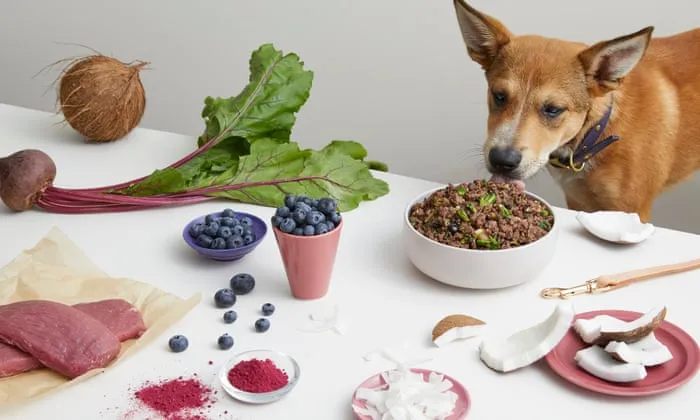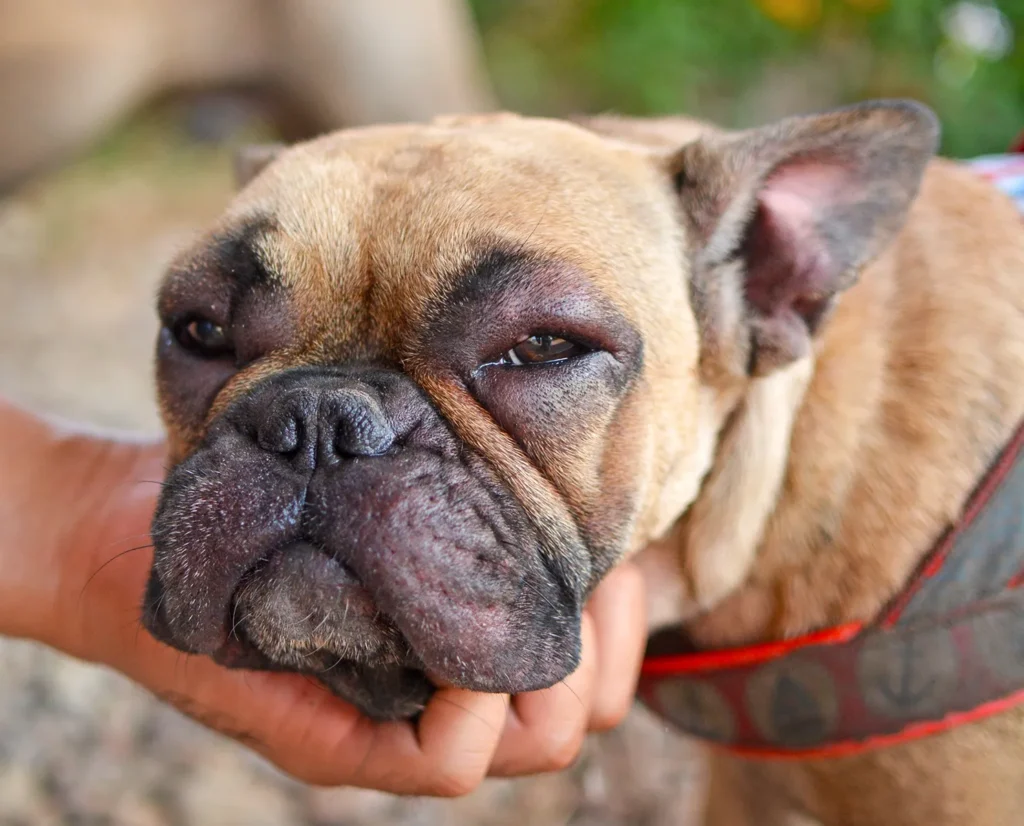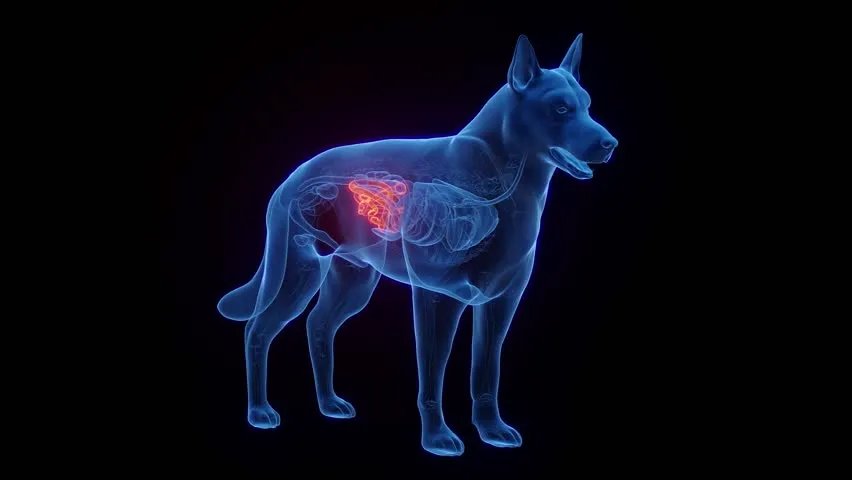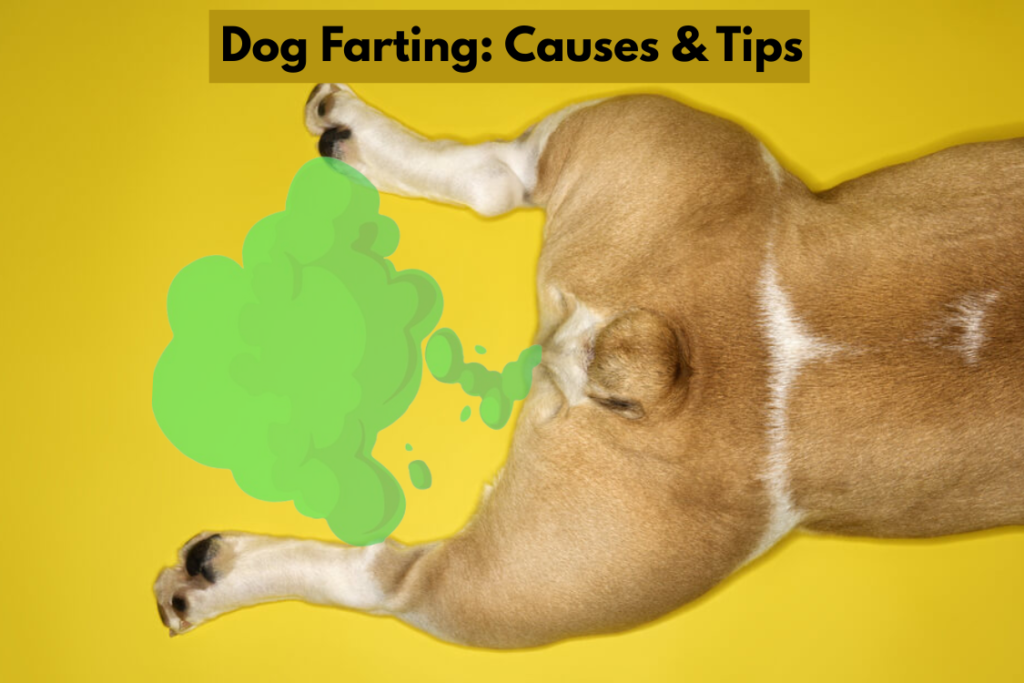Farting is natural—for both humans and dogs. But if your dog is suddenly gassy, letting out room-clearing stink bombs more often than usual, it’s normal to wonder: Why is my dog farting so much? From harmless dietary mishaps to underlying health issues, excessive flatulence can be a clue into what’s going on inside your pup’s digestive system.
Let’s break down the possible causes, when it’s just a little toot, and when it’s time to call the vet.
The Science of Dog Farts: What’s Actually Happening?

Fart occurs when gas builds up in your dog’s digestive tract and is released through the rectum. This gas comes from two primary sources:
- Swallowed air (especially if your dog eats too quickly)
- Bacterial fermentation in the colon as food breaks down
Some dogs are just a little more gassy than others. However, chronic or especially foul-smelling gas may signal an underlying issue.
Common Causes of Excessive Dog Farting
There are plenty of reasons your dog might be gassing up the room. Here are some of the most frequent culprits:
1. Diet-Related Issues: The #1 Gas Trigger

The food your dog eats plays a massive role in their gut health.
- Low-quality kibble with fillers like corn, soy, or wheat can ferment in the gut and produce excess gas.
- Dairy products can cause problems in lactose-intolerant dogs.
- Sudden dietary changes can disrupt gut flora and lead to temporary gassiness.
- Spoiled food or table scraps (especially fatty or spicy items) can upset your dog’s stomach.
Tip: Slowly transition new food over 7–10 days and avoid giving your dog people food unless it’s vet-approved.
2. Eating Too Fast: Air In = Gas Out

If your dog wolfs down meals in record time, they’re probably swallowing a lot of air. This trapped air has to escape—and it often comes out the back end.
What you can do:
- Try an automatic dog feeder or slow-feeder bowl.
- Feed smaller meals more frequently to reduce gulping.
3. Food Intolerances or Allergies

Just like humans, dogs can develop intolerances to certain foods—even things they’ve eaten for years. The immune system or digestive tract may react negatively to ingredients like:
- Chicken
- Beef
- Grains
- Eggs
Signs to watch for: Excessive gas, diarrhea, itching, or ear infections.
A limited ingredient diet or hypoallergenic dog food may help.
4. High-Fiber or Gas-Producing Foods

Some ingredients are simply more fermentable and gassy than others. Even “healthy” options can cause stink if your dog’s digestive system struggles to break them down.
Examples include:
- Beans and legumes (like chickpeas or lentils)
- Broccoli, cauliflower, or cabbage
- Peas and soy products
Try adjusting your dog’s diet to see if symptoms improve.
5. Gut Microbiome Imbalance

The balance of bacteria in your dog’s digestive system is key to keeping gas and stool normal. If the gut microbiome is out of balance, excessive fermentation and gas may occur.
Contributing factors:
- Antibiotics or medication
- Stress
- Poor diet
Solution: Consider a probiotic supplement or digestive enzymes to support healthy digestion.
6. Underlying Digestive Conditions

Persistent, foul-smelling gas may signal a deeper issue. Some possibilities include:
- Exocrine Pancreatic Insufficiency (EPI): A condition where your dog can’t produce enough digestive enzymes.
- Inflammatory Bowel Disease (IBD): Chronic inflammation that affects digestion and nutrient absorption.
- Malabsorption syndromes
- Parasites or infections
If your dog has gas alongside diarrhea, weight loss, vomiting, or lethargy, it’s time to get a vet involved.
What Does Smelly Dog Gas Mean?

All dog farts smell a little. But if your dog’s gas has gone from mildly offensive to unbearable, something might be off.
Rotten egg smell? That’s sulfur. It often indicates high protein foods or poor digestion.
Fishy or putrid? Could mean digestive imbalance, a food intolerance, or digestive issues with fat metabolism.
If your dog’s gas is clearing the room multiple times a day, it’s more than just embarrassing—it’s worth investigating.
When to Call the Vet: Red Flags You Shouldn’t Ignore

Occasional toots are normal. But ongoing or especially nasty gas—especially if paired with other symptoms—warrants a vet visit.
See your vet if your dog has:
- Persistent diarrhea or loose stools
- Vomiting
- Bloated or painful abdomen
- Sudden weight loss
- Lethargy or behavior changes
- Loss of appetite
These symptoms can point to digestive disorders like IBD, pancreatitis, or even obstructions.
How to Help Your Dog Fart Less

Ready to clear the air? Here are some Fart Remedies steps you can take to reduce your dog’s gas naturally:
1. Improve Their Diet
Feed your puppy a high-quality dog food, balanced diet free of common fillers and allergens. Grain-free or limited-ingredient options may help sensitive dogs.
2. Add Digestive Support
Try adding probiotics or digestive enzymes to your dog’s food to improve digestion and reduce gas. These help break down food more efficiently and support a healthy gut.
3. Slow Their Eating
Use automatic-feeding bowls or puzzle toys to reduce air swallowing. Feeding smaller, more frequent meals can also help.
4. Eliminate Table Scraps
No matter how cute those puppy eyes are, stick to dog-safe treats and avoid giving them human food that can upset their stomach.
5. Regular Exercise
A daily walk or play session keeps digestion moving smoothly and helps release trapped gas more naturally.
Don’t Ignore the Flatulence—They Could Be Telling You Something

While a little doggy flatulence is normal, excessive or smelly gas is often your dog’s way of signaling something’s not quite right. From simple dietary tweaks to managing food sensitivities or gut imbalances, there are many ways to reduce the stink and help your pup feel better.
If you’ve tried adjusting their diet and habits and the gas just won’t quit—or if other symptoms arise—consult your veterinarian. A professional evaluation will rule out any serious issues and guide you to the best solution.
You can also explore online dog training programs like The Puppy Coach, which offer helpful guidance on nutrition, digestion, and overall wellness—perfect for new and experienced dog owners alike.
Your dog’s digestive health is key to their comfort, energy, and long-term well-being. So next time you hear a suspicious toot, don’t just laugh—listen up.



